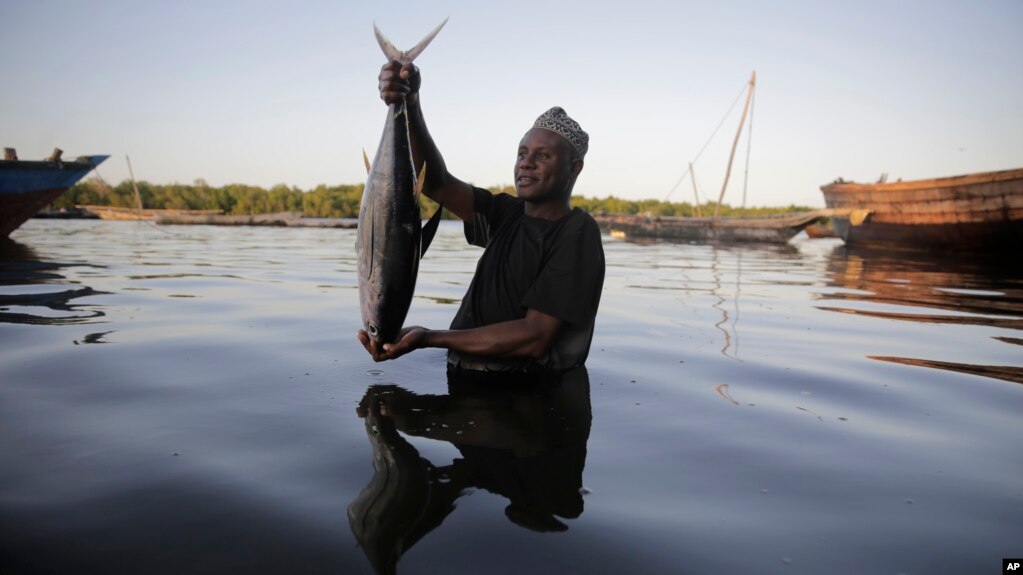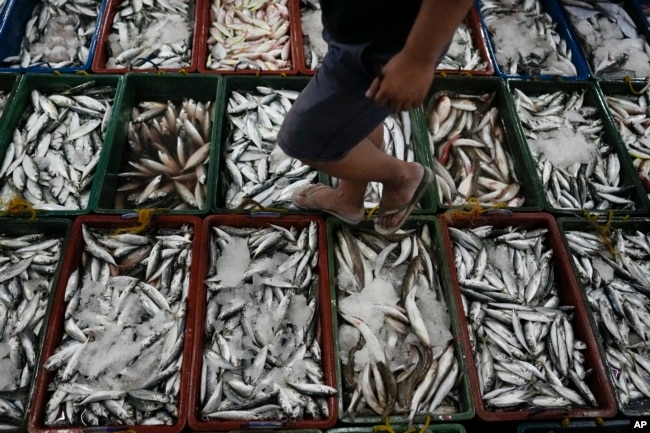Activists: Fishing Regulators Need More Transparency

Environmental groups and fishing interests are criticizing regional organizations set up by the United Nations to supervise fishing activities around the world.
The groups say the U.N. bodies need to be clearer and more open about what they are doing.
There are about 50 fisheries management organizations around the world. They bring together local fishers, coastal states, and big international fishers. They help regulate fishing rights for companies and countries in a way that is meant to conserve populations of fish and other ocean animals.
For years, these regulators have been accused of undemocratic practices that favor big, industrial fishers. Now several conservation groups are calling for a change.
Groups like the Ocean Foundation and the Global Tuna Alliance have supported more openness about the fisheries organizations’ decisions. They say more openness will permit more members of the public to take part in conservation efforts.
The U.N. Food and Agriculture Organization (FAO) oversees fisheries management organizations. The FAO said it supports more openness in fisheries. But for local and small fishers who depend on well-managed fish populations, it's unclear if more open measures will help.
Kassim Abdalla is a fisherman on Kenya's coast. He is part of a cooperative group of fishers.
“I only hear of meetings on fisheries, but I have no idea what it is they discuss there. I have never been invited," he said. He added that he cannot compete with large fisheries from developed nations.
The concern among environmentalists and small fishers is that large fishing boats can do things that are not possible for smaller boats. Their activities take fish supplies from fishers who must stay close to the coast. If there are no fish close to the coast, smaller fishers must take their boats farther out to sea, which is more dangerous.

FILE - A man inspects newly caught fish at a market in Tacloban, Leyte, Philippines on Oct. 26, 2022. (AP Photo/Aaron Favila, File)
Many industrial fishing boats use a method called purse seining. Fredric Manach said this method uses two-kilometer-long nets that surround whole schools of fish. Manach is a marine scientist with the ocean conservation group Bloom. Purse seining makes it difficult to protect fish populations, he said.
The European Union is closely involved in eight regional fisheries management organizations worldwide. The EU has been accused of using methods like purse seining. Critics also say the EU pressures coastal states to get better access to regional fishery management organizations.
The EU Commission denied the claims. It said it is not suppressing developing countries for more favorable access. It also said that it would ban purse seining if science supported a ban. But “it is essential that science is the backbone” of decision-making, EU officials said.
Manach said the regulatory bodies need to be more open about how they set fishing limits for countries and groups. “There is absolutely no transparency” surrounding how limits are set and who gets them, he said.
Last month, the U.N. high seas treaty was finally approved. The treaty will create a new body to manage conservation of ocean life and establish protected areas in the world’s oceans.
The hope for conservation groups is that fishery bodies involve small fishers in the discussions.
Ryan Orgera is with Accountability.Fish, a non-profit group based in Brussels. He said the most important thing is transparency.
He said more openness can make sure that "societies have access to what happens to our collective resources.”
Words in This Story
management –m. the activity of controlling business operations of a company, office or organization
region — n. an area of a country or the world that is different from others
regulate — v. to make rules or laws to control an activity or industry
conserve — v. to keep something safe from damage or destruction
access — n. the ability to use or take part in an activity or resource
net –n. a device made of rope or line that is used to catch fish
backbone — n. the most important or strongest part of something
transparent — adj. the quality of not hiding but making clear what people mean to do
society — n. a large number of people living in a country who have an organized community that observes laws
https://learningenglish.voanews.com/a/activists-fishing-regulators-need-more-transparency/7050479.html